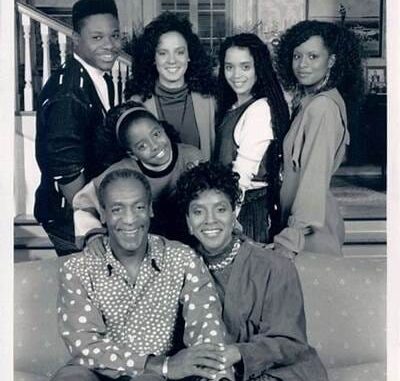
1. Bill Cosby’s Popularity and Image
By the time The Cosby Show premiered in 1984, Bill Cosby was already a well-established figure in American entertainment. He was a beloved comedian, known for his stand-up comedy routines and his work on I Spy (1965–1968), where he became the first African-American actor to star in a dramatic television series. He was a household name, and his public persona as a likable, wise, and family-oriented figure made him the perfect face for the show.
In many ways, The Cosby Show was crafted as an extension of Cosby’s own image, showcasing him as the epitome of a successful, loving father. The use of his name in the title emphasized the connection between the character he portrayed—Dr. Heathcliff Huxtable—and his real-life reputation as a role model for family values and positive Black representation in mainstream media.
2. Cosby’s Role in the Creation of the Show
Unlike many shows where the title might be based on the characters or setting, The Cosby Show was a direct reflection of Bill Cosby’s creative involvement. Cosby was deeply invested in the show’s production from the very beginning. He co-created the series with Tom Werner and Marcy Carsey, and as the executive producer, Cosby had a significant influence on the show’s tone, its focus on positive portrayals of African-American life, and its appeal to a broad, multiracial audience. By putting his name in the title, the show reflected his central role in shaping its identity.
3. A Star-Driven Show
In the 1980s, many successful sitcoms were driven by the star power of their lead actors (for example, The Mary Tyler Moore Show and The Jeffersons). By calling it The Cosby Show, the producers were capitalizing on Cosby’s immense popularity and credibility. It positioned the show as something built around his personality and appeal. This made it clear to audiences that they were tuning in for Bill Cosby’s unique brand of humor, which blended observational comedy with heartfelt moments.
4. Personal Branding and Legacy
The title The Cosby Show also helped to reinforce Cosby’s growing brand as a family-friendly entertainer, someone who could successfully combine entertainment with moral lessons. For much of the show’s run, Cosby was seen as a positive force in American culture, using the show as a platform to address important social issues like education, race, and family dynamics.
In hindsight, the title takes on a more complicated resonance given the later controversy surrounding Bill Cosby’s legal issues. Nonetheless, the name The Cosby Show was initially a reflection of Bill Cosby’s widespread appeal and his attempt to create an iconic, family-oriented show that would be remembered for its positive impact.
In short, The Cosby Show was called that because it was designed to be Bill Cosby’s showcase—both as an actor and as a producer—and to draw on his star power and reputation. The title made it clear that the show was built around him, emphasizing his role as a beloved cultural figure at the time. The decision to name the show after Cosby was a marketing and branding choice that aligned with his status as one of America’s most prominent entertainers.